Today’s blog post is a photo essay, which documents the removal of a dead ash tree from Town Commons, just outside of Grand Island’s Town Hall.
On Wednesday, I witnessed the loss of trees in town commons. The loss, however, had already occurred. The trees that were removed had already passed away.
The area was very busy. A crew from the town’s highway department was there to remove some of the dead and dying ash trees that were close to the road.
This is a scene that could soon be repeated across Grand Island.
Between 30 and 60 percent of Grand Island’s trees are ash trees.
According to Mark Whitmore, an entomologist from the department of natural resources, which is a part of the College of Agriculture and Life Sciences at Cornell University,
all of Grand Island’s ash trees are infested.
Most will die.
in its larval state, the insect destroys ash trees from the inside.
After the adult lays its eggs on the tree,
the larva eats the tree’s inner
bark.
That disrupts the tree’s ability to transport nutrients throughout the
tree.
One of the first visible signs of infestation is the loss of the tree’s
top foliage.
Within two to three years of infestation, the tree is dead.
Mark Whitmore
said that the dead and dying trees pose an imminent threat to the community’s
infrastructure.
need to protect ourselves and our infrastructure,” he said.
The bark of a
dead ash tree is brittle and branches could break off or the entire tree could
fall.
The trees could fall on houses, cars, pedestrians, and power lines.
“I
live in the country near Ithaca
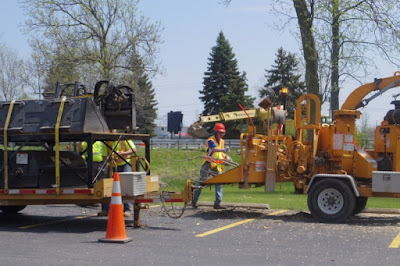 |
| branches go into the wood chipper, and the chips can be used for mulch. |
and I have a chainsaw in the truck and a
generator.”
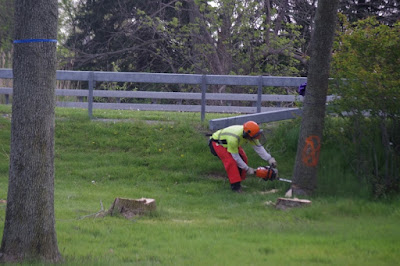





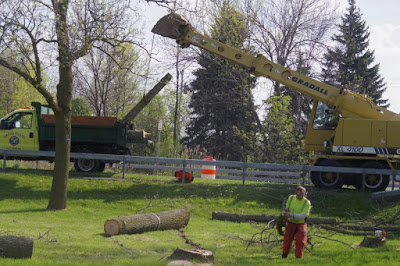
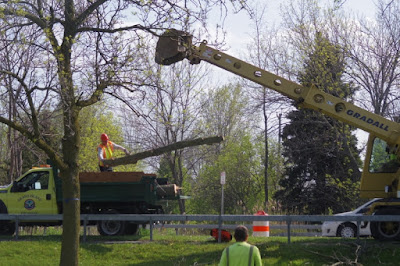
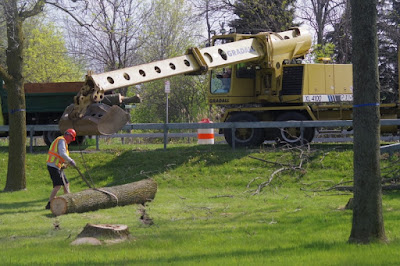
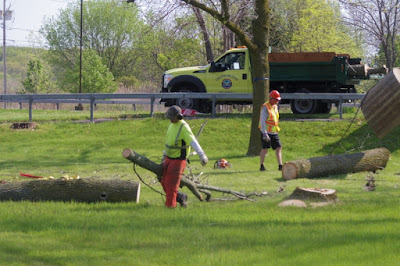
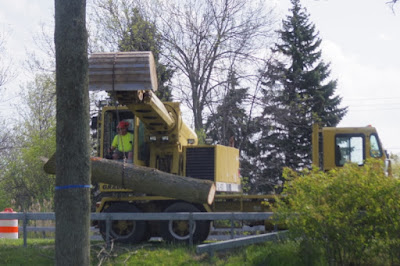

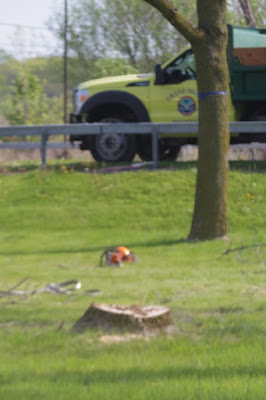



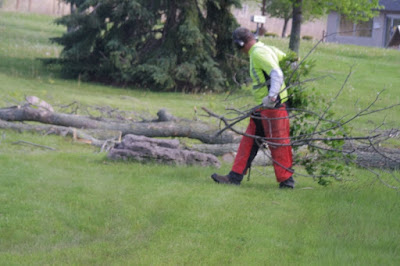
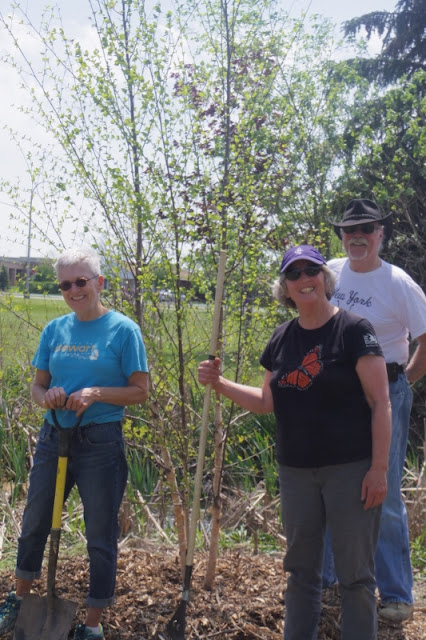
This is a common story everywhere. The way trees get hacked to make way for high-rises, or get chopped off for being infested causes a damage to our environment.
We too are encouraged to plant saplings, or sow seeds to replace the ones that have been cut off.
It sure must break the heart to watch the trees being chopped, isn't it?
A co worker, who lives south of Syracuse, has to make a decision about her ash trees – the pesticide injection treatment is expensive, and she has two children in college. She's already lost one of her trees. At least, the trees survived the most recent storm to hit the area (yesterday) but there is so much danger now from those dead and dying trees. It also reminds me of visiting family in small town Iowa in 1968 and watching the elm trees being removed. For this big city girl, it was so sad to see. And we've lost at least one ash in my neighborhood; more to come, I am sure.